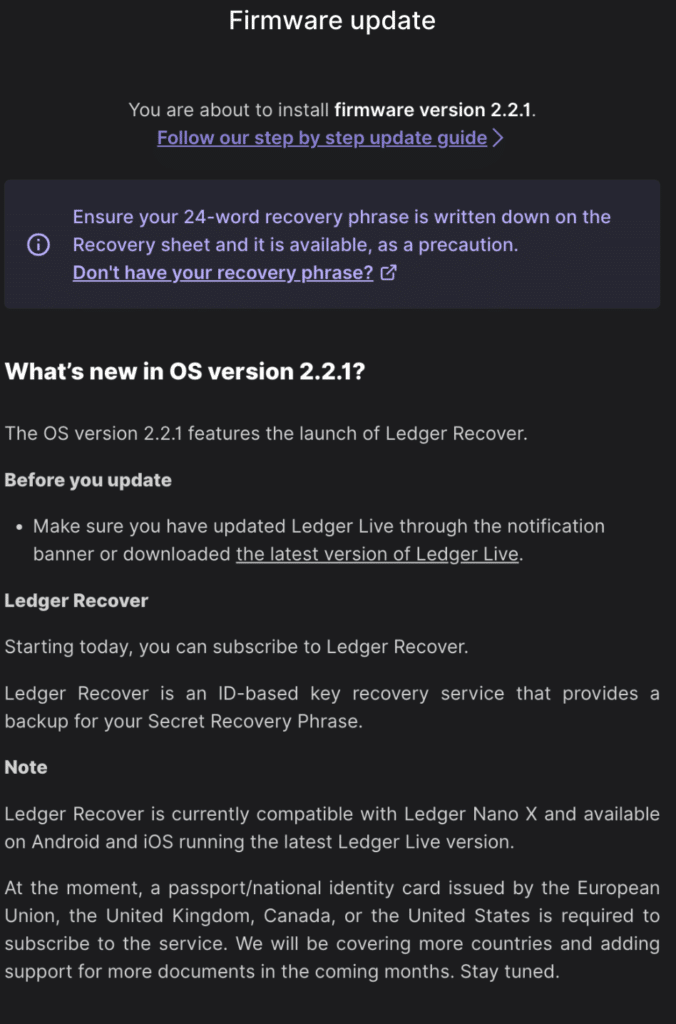Ledger users express concerns over new phrase recovery feature

Hardware wallet manufacturer Ledger has recently faced backlash from its users following the introduction of a controversial feature known as “Ledger Recover.”
This ID-based subscription service allows users to retrieve their secret recovery phrase and is set to be included in the upcoming firmware release 2.2.1 for Ledger Nano X hardware wallets.
This subscription-based service has raised concerns among users and the crypto community as it grants Ledger access to customers’ seed phrases, contradicting the fundamental purpose of a hardware wallet.
Ledger’s KYC registration raises user concerns
One of the key points of contention revolves around the requirement for Know Your Customer (KYC) registration to avail of the “Recover” feature. Many crypto enthusiasts value their privacy and find this demand contradictory to the principles they hold dear.
KYC registration obliges users to submit a picture of a government-issued identification document. Presently, this registration requirement applies to users in the EU, the U.K., Canada, and the U.S., while the subscription service is only available for Ledger Nano X devices.

Ledger’s decision to implement this update has drawn sharp criticism from the crypto community, primarily due to the erosion of the core purpose of a hardware wallet: safeguarding the user’s seed phrases.
Multiple data breaches
This backlash has been compounded by Ledger’s history of breaches, which has led to a loss of trust among users.
Notably, Ledger encountered security breaches in July 2020 and December 2020, which resulted in the theft of the physical addresses of 270,000 Ledger owners and subsequent extortion attempts against affected customers.
Despite Ledger’s assurance that there was no link between the compromised data and the funds in users’ wallets, the incidents further fueled the community’s mistrust.
Controversy surrounds Wallet Maker’s release of ‘Stylish’ chain
This latest controversy adds to Ledger’s track record of facing criticism. Recently, the company faced backlash for releasing a “stylish” necklace designed to hold their cold wallets.
Critics argued that such a product could attract thieves, undermining the security measures that cold wallets are intended to provide.
Ledger defended the necklace, clarifying that it did not grant access to the entirety of a user’s wealth.
The hostile reception to the firmware update and the ongoing concerns about user privacy highlight the need for hardware wallet manufacturers to maintain the highest standards of security and respect for user autonomy.
















